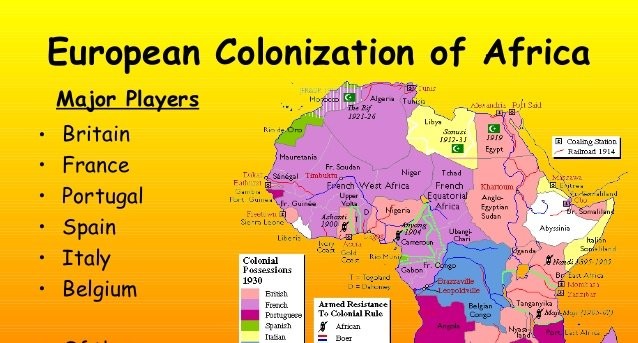
The Colonization of Africa (1).
Trevor Noah does a brilliant bit on colonization. Watch it here.
He makes it a very interesting point about how incredulous colonization is, as a concept and as a practice. So it’s interesting to explore the colonization of Africa.
The colonization of Africa can be divided into Classical antiquity and European colonialism. More focus is placed on European colonialism because this left a more severe and permanent mark on the continent with some French colonies still paying duties to France and most African countries using the languages of their colonial masters as lingua franca.
European invasion, aggression, pressure, conquest and colonization of African occurred between 1800-1900 following the failing of continued slave trade. Several countries resisted but by the turn of the century, only Liberia and Ethiopia had not been colonized. Europe invaded Africa for 3 reasons; economic, political and social. As slave trade dwindled and Europe entered a period of industrial revolution, it became vital to find new ways to support the European expansion. Colonial masters took over the resources of their colonies for their economic growth.
At the time of colonization, internal European politics was tense and rife with complications. Power struggles meant that these countries had to find ways to prove they were more powerful than their neighbors. Colonizing foreign lands was a measure of strength. Political reasons for colonizing Africa were driven by political conflicts within Europe.
As industrial revolution swept across Europe, social issues like poverty, unemployment and other related vices arose on the continent. Not all citizens of the continent were benefitting from the revolution so colonial masters would re-settle these displaced citizens in their colonies to export their problems. These exported citizens resettled in Algeria, Tunisia, South Africa, Namibia, Angola, Mozambique, Zimbabwe and Zambia.
Colonization has left its impact on the African continent and some would argue that some of the problems Africa currently faces are rooted in its colonization.